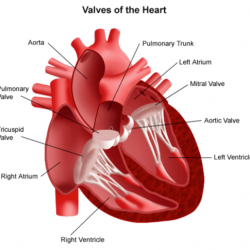Common diseases we treat:
Heart Valve Disease

The heart beats to move blood to the rest of your body. There are four chambers in the heart, the left and right atria and the left and right ventricles. There are also four valves in the heart. They are called the pulmonary, tricuspid, mitral, and aortic valves. They keep your blood flowing forward as your heart beats. Sometimes these heart valves do not open or close properly. Problems can occur from birth (congenital), caused by disease (bacterial endocarditis or rheumatic fever) or from natural aging. Symptoms include shortness of breath, fatigue, chest pain or fainting.
Frequently asked questions
How long does this procedure typically take?
Surgical valve repair or replacement typically takes around 4-5 hours.
How long will I be in the hospital?
Hospital course after uncomplicated surgery is usually 3-5 days.
Will I need to follow up?
You will follow up with us after surgery either in our office or via video teleconference 1-2 weeks after leaving the hospital. You will also need follow up with your cardiologist or PCP long term.
Will I need to take any new medications?
Yes, most patients require a blood thinner known as coumadin, or warfarin, after having a valve replaced. The duration of therapy depends on the type of valve used, which is discussed with your surgeon prior to your operation.
